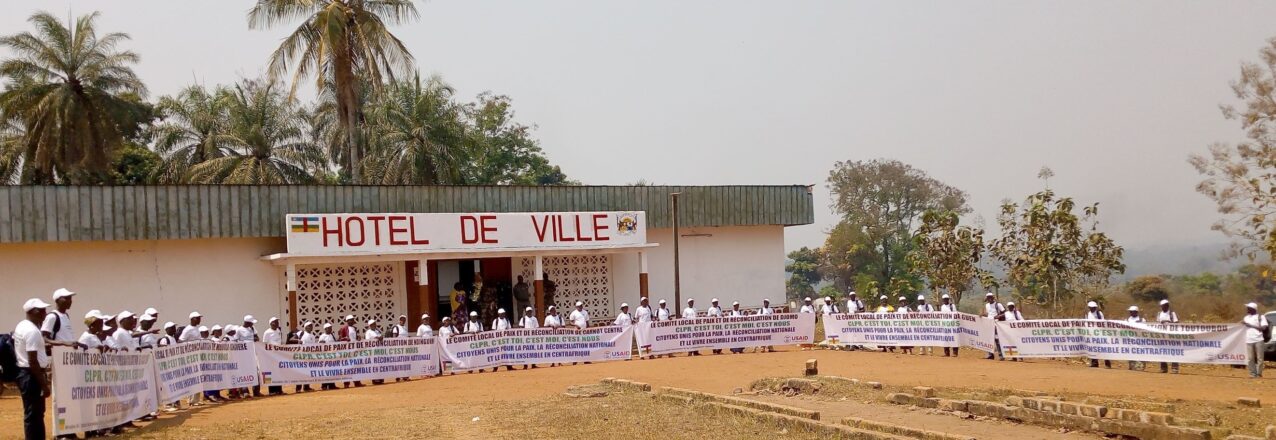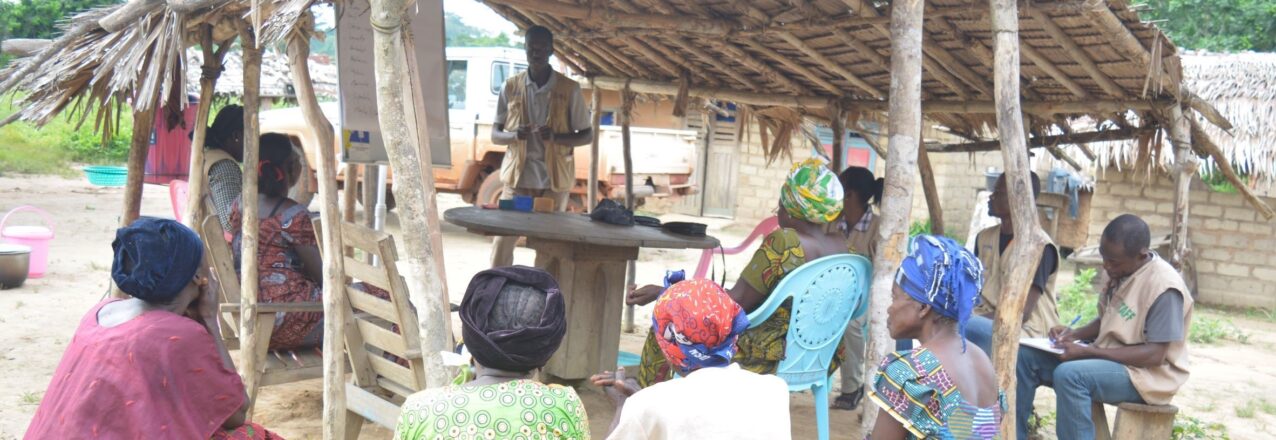Key Accomplishments and Challenges
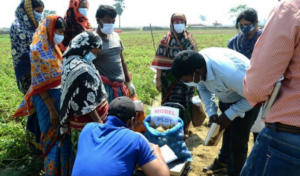 During this quarter, the coronavirus disease 2019 (COVID-19) pandemic continued to require adaptive management. Southern Africa experienced its highest level of COVID-19 impact to date in January and February, while India began to return to normal. Vaccinations became available in some ILRG countries and widely in the United States, requiring a new set of considerations around how ILRG team members interact with one another and in the field.
During this quarter, the coronavirus disease 2019 (COVID-19) pandemic continued to require adaptive management. Southern Africa experienced its highest level of COVID-19 impact to date in January and February, while India began to return to normal. Vaccinations became available in some ILRG countries and widely in the United States, requiring a new set of considerations around how ILRG team members interact with one another and in the field.
Mozambique: ILRG’s six implementing partners all moved from planning and initial engagements with local government authorities into active fieldwork during the quarter, ranging from land delimitation, planning for community delimitation, and support to agricultural production on previously delimited land. National coordination with the USAID Supporting the Policy Environment for Economic Development (SPEED+) program continued on policy and law. ILRG provided various types of support to the National Land Commission and the Ministry of Land and Environment, including significant levels of technical support to the national consultations process under the land policy reform process. This culminated in the design and deployment by ILRG of a digital portal to share the results of this exercise, which will be formally launched by the Minister of Land and Environment on Earth Day 2021. Planning for the Sofala intervention in resettlement areas has continued to be a challenge. After much discussion and the reaching of an agreement with the national partner, the National Institute of Disaster Management (INGD), on the concept and on detailed design for the Sofala activity, ILRG was in the advanced stages of planning a joint planning trip when the INGD indicated that they would be withdrawing, since they had no mandate in “formalizing land rights of people.” ILRG has made arrangements to identify an alternative implementing partner, but this late and unexpected decision has led to an additional delay. However, a site visit to Sofala is still planned for early April.
Zambia: Five of lLRG’s six main field implementation subcontracts or grants ended this quarter with partners summarizing lessons learned on land documentation/administration, community forest management, and game ranching. The Chipata and Petauke District Land Alliances and Frankfurt Zoological Society (FZS) completed the production of almost 15,000 certificates, expected to be signed and distributed over the coming quarters. ILRG engaged with the Ministry of Lands and Natural Resources (MLNR) on both women’s rights in the National Land Titling Programme and supporting the ministry’s communication strategy. Within the wildlife and natural resource management sectors, ILRG supported the first gender-equitable community scout recruitment and training, as well as materials for communities to improve their negotiating positions with the private sector. Furthermore, material development for upcoming community resources board (CRB) and gender leadership trainings were launched. While ILRG agreed on future priorities with the Department of National Parks and Wildlife (DNPW) in previous quarters, there was limited advancement this quarter. World Wide Fund for Nature (WWF) adopted ILRG’s CRB gendered election materials and with DNPW is integrating them into this quarter’s elections. With respect to district planning, ILRG partners delivered the two most complete local area plans to Chipangali and Chipata Districts from Mnukwa and Maguya Chiefdoms respectively.
Ghana: The Ghana team resumed field work in January after a ten-month suspension due to COVID-19. The 14-day field work consisted of community training on climate change mitigation and adaptation, community education and engagement on climate-smart land use decision making via the ECO Game, and initial engagement on tree nurseries and the concept of payments for ecosystem services (PES) tied to maintaining shade trees on farms. ECOM will distribute shade tree seedling at no cost to the communities or ILRG.
India: During this quarter ILRG continued to provide agronomy training to over 700 PepsiCo women farmers in 12 communities, as well as a refresher training for 230 women reached in Year 1. Six modules of training are providing women with information and skills on land preparation, seed treatment and plantation; safe use and storage of agro-chemicals; soil health and nutrient management; common pest and diseases; harvesting, sorting, and grading; and record keeping and record analysis. A seventh module on land literacy will be delivered to men and women farmers over the next months, alongside training on sustainable farming practices. Harvesting for the 2020 – 2021 season has been completed in most communities and production data is being collected. The two women’s land leasing groups had a successful season and data on profitability is being finalized. ILRG also started to implement gender norms change interventions, piloting two methodologies – Gender Action Learning System (GALS) and Nurturing Connections – in six communities each. GALS sessions started in February and have reached almost 200 farmers so far, out of which 70 percent are women and 30 percent men. Feedback is positive, and ILRG is monitoring shifts in harmful norms that hinder women’s participation in the potato supply chain and economic empowerment.
WEE: ILRG continued to build the capacity of in-country staff and partners on gender equality, women’s land rights, women’s economic empowerment, and gender-based violence (GBV), including a virtual capacity building training for partners in Liberia. On International Women’s Day, ILRG disseminated learning and impact from WEE funded activities, publishing blog posts, factsheets, reports, and briefs on LandLinks, AgriLinks, and social media. The USAID-funded Passages Project is providing technical assistance on social norms change to ILRG and partner staff in five countries through a series of capacity-building workshops. In Ghana, ILRG finalized data collection and drafted the initial gender assessment report, also advancing coordination with ECOM and Hershey to begin implementation over the next quarter. The activity will strengthen ECOM’s capacity on gender equality and women’s empowerment, which has a high sustainability and scalability potential, and increase women’s access to productive resources in the cocoa sector. ILRG recruited and onboarded field staff in Malawi, who started coordination with the Government of Malawi and USAID/Malawi, as well as selection of a target traditional land management area for documentation.
Liberia: With USAID approval of ILRG’s Liberia COVID-19 mitigation protocols in January, the two grantees were able to resume fieldwork, including completing community self-identification validation with the Liberia Land Authority and starting to draft community land and resource governance bylaws. In this quarter, one grantee realized that six of the seven communities that it was collaborating with had been part of another organization’s customary land formalization program. While the other organization, funded by the Tenure Facility, had worked with the communities to self-identify at the clan level, ILRG’s grantee communities chose to self-identify at a more decentralized town level. Both organizations are currently working with the Liberia Land Authority on how to resolve the overlap.
Madagascar: The coalition of actors supporting the Climate Resilient Cocoa Landscapes (CRCL) initiative continued to meet on a regular basis to set up the new multi-stakeholder consultative platform; CRCL lead implementer Helvetas has not yet succeeded in obtaining a regional decree needed to formalize the new consultative structure. The ILRG team participated actively in two preliminary consultative meetings in Ambanja and used these occasions to carry out other applied research activities focusing primarily on the role of cooperative enterprises in the cocoa economy and their perceptions of land tenure problematics. Following discussions with USAID about the future course of the activity, it was decided to focus analysis on complex ownership issues around the ex-indigenous reserves, prepare a training program on land tenure, but otherwise move slowly for the next few months until funding priorities become clear. The team prepared a synthesis paper on what is currently known on landtenure in the Sambirano Valley that has been shared for comment.
Other Activities: ILRG submitted a scope of work (SOW) and budget for a new field support activity with USAID/DRC on investigating conflict financing, due diligence, and socio-economic dynamics in the artisanal mining sector. Progress continued within work plans for support to USAID’s Indigenous Peoples portfolio and PPA. With respect to work on Prindex collaboration, ILRG finalized its subcontract for data collection in Colombia. ILRG remains open to engagement with USAID Washington on analytical support and began working with USAID to align activities and messaging with the new administration
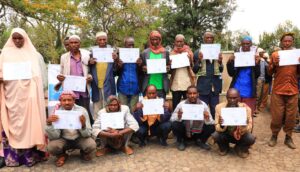 United States Agency for International Development (USAID)/Ethiopia contracted Tetra Tech as the prime contractor to implement the five-year Feed the Future Ethiopia Land Governance Activity (LGA) Task Order under the Strengthening Tenure and Resource Rights II (STARR II) Indefinite Delivery Indefinite Quantity (IDIQ) Contract. Tetra Tech will implement the LGA over a five-year period from May 2019 to May 2024. This Quarterly Report No. 15 summarizes implementation progress made during the period of January 1 – March 31, 2021 (Quarter 2, FY 2021).
United States Agency for International Development (USAID)/Ethiopia contracted Tetra Tech as the prime contractor to implement the five-year Feed the Future Ethiopia Land Governance Activity (LGA) Task Order under the Strengthening Tenure and Resource Rights II (STARR II) Indefinite Delivery Indefinite Quantity (IDIQ) Contract. Tetra Tech will implement the LGA over a five-year period from May 2019 to May 2024. This Quarterly Report No. 15 summarizes implementation progress made during the period of January 1 – March 31, 2021 (Quarter 2, FY 2021).


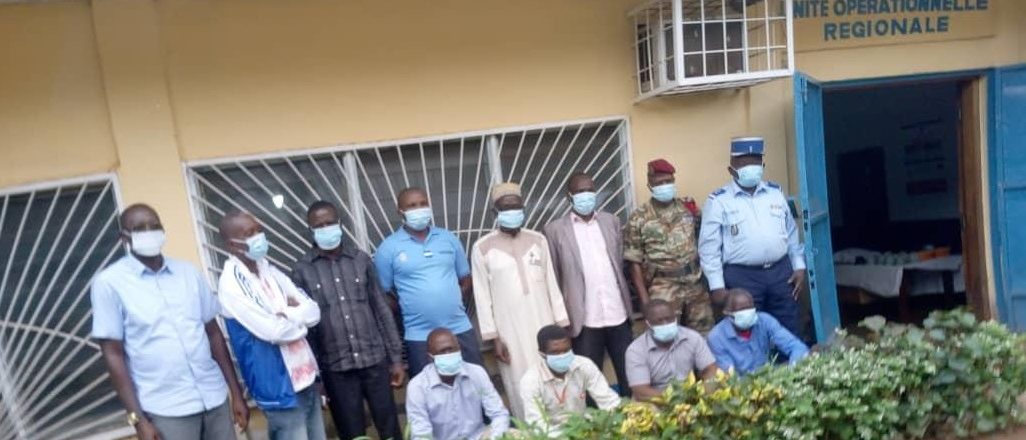
 During this quarter, the coronavirus disease 2019 (COVID-19) pandemic continued to require adaptive management. Southern Africa experienced its highest level of COVID-19 impact to date in January and February, while India began to return to normal. Vaccinations became available in some ILRG countries and widely in the United States, requiring a new set of considerations around how ILRG team members interact with one another and in the field.
During this quarter, the coronavirus disease 2019 (COVID-19) pandemic continued to require adaptive management. Southern Africa experienced its highest level of COVID-19 impact to date in January and February, while India began to return to normal. Vaccinations became available in some ILRG countries and widely in the United States, requiring a new set of considerations around how ILRG team members interact with one another and in the field.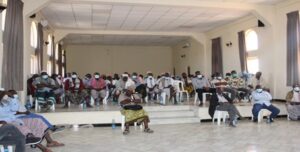 United States Agency for International Development (USAID)/Ethiopia contracted Tetra Tech as the prime contractor to implement the five-year Feed the Future Ethiopia Land Governance Activity (LGA) Task Order under the Strengthening Tenure and Resource Rights II (STARR II) Indefinite Delivery Indefinite Quantity (IDIQ) Contract. Tetra Tech will implement the LGA over a five-year period from May 2019 to May 2024. This Quarterly Report No. 15 summarizes implementation progress made during the period of October 1 – December 31, 2020 (Quarter 1, FY 2021).
United States Agency for International Development (USAID)/Ethiopia contracted Tetra Tech as the prime contractor to implement the five-year Feed the Future Ethiopia Land Governance Activity (LGA) Task Order under the Strengthening Tenure and Resource Rights II (STARR II) Indefinite Delivery Indefinite Quantity (IDIQ) Contract. Tetra Tech will implement the LGA over a five-year period from May 2019 to May 2024. This Quarterly Report No. 15 summarizes implementation progress made during the period of October 1 – December 31, 2020 (Quarter 1, FY 2021).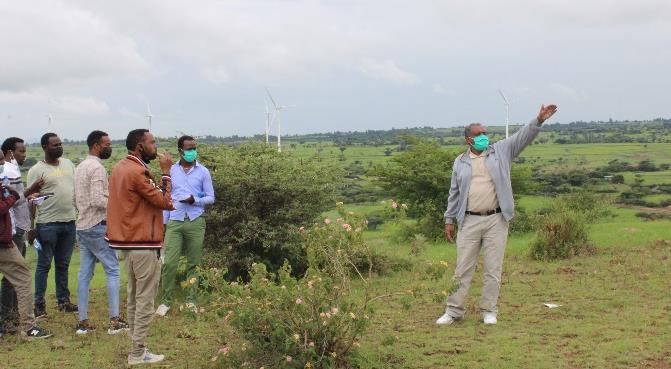 United States Agency for International Development (USAID)/Ethiopia contracted Tetra Tech as the prime contractor to implement the five-year, $10.9 million Feed the Future Ethiopia Land Governance Activity (Activity) Task Order (TO) under the Strengthening Tenure and Resource Rights (STARR) II Indefinite Delivery Indefinite Quantity (IDIQ) Contract. Tetra Tech will implement the Activity over a five-year period from May 2019 to May 2024. This Quarterly Report No. 6 summarizes implementation progress made during the period of July 1- September 30, 2020 (Quarter 4, FY 2020).
United States Agency for International Development (USAID)/Ethiopia contracted Tetra Tech as the prime contractor to implement the five-year, $10.9 million Feed the Future Ethiopia Land Governance Activity (Activity) Task Order (TO) under the Strengthening Tenure and Resource Rights (STARR) II Indefinite Delivery Indefinite Quantity (IDIQ) Contract. Tetra Tech will implement the Activity over a five-year period from May 2019 to May 2024. This Quarterly Report No. 6 summarizes implementation progress made during the period of July 1- September 30, 2020 (Quarter 4, FY 2020).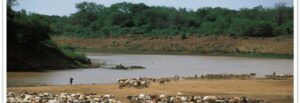 United States Agency for International Development (USAID)/Ethiopia contracted Tetra Tech as the prime contractor to implement the five-year, $10.9 million Feed the Future Ethiopia Land Governance Activity (Activity) Task Order (TO) under the Strengthening Tenure and Resource Rights (STARR) II Indefinite Delivery Indefinite Quantity (IDIQ) Contract. Tetra Tech will implement the Activity over a five-year period from May 2019 to May 2024. This Quarterly Program Report No. 5 summarizes implementation progress made during the period of April 1- June 30, 2020 (Quarter 3, FY2020).
United States Agency for International Development (USAID)/Ethiopia contracted Tetra Tech as the prime contractor to implement the five-year, $10.9 million Feed the Future Ethiopia Land Governance Activity (Activity) Task Order (TO) under the Strengthening Tenure and Resource Rights (STARR) II Indefinite Delivery Indefinite Quantity (IDIQ) Contract. Tetra Tech will implement the Activity over a five-year period from May 2019 to May 2024. This Quarterly Program Report No. 5 summarizes implementation progress made during the period of April 1- June 30, 2020 (Quarter 3, FY2020).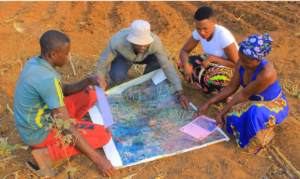 During this first quarter of fiscal year (FY) 2021, ILRG increased the pace of activities following six months of general slowdown due to the coronavirus disease 2019 (COVID-19) pandemic. While COVID-19 impacts in the United States and Europe meant that all staff based there were working from home, teams in project countries were able in some cases to start working out of the office and engaging with beneficiaries, albeit with increased vigilance, particularly related to limiting travel and ensuring the use of facemasks, distancing measures, limiting participant numbers and handwashing for all meetings. USAID mission staff were also increasingly able to interact both with the project and government staff under differing conditions in each country.
During this first quarter of fiscal year (FY) 2021, ILRG increased the pace of activities following six months of general slowdown due to the coronavirus disease 2019 (COVID-19) pandemic. While COVID-19 impacts in the United States and Europe meant that all staff based there were working from home, teams in project countries were able in some cases to start working out of the office and engaging with beneficiaries, albeit with increased vigilance, particularly related to limiting travel and ensuring the use of facemasks, distancing measures, limiting participant numbers and handwashing for all meetings. USAID mission staff were also increasingly able to interact both with the project and government staff under differing conditions in each country.